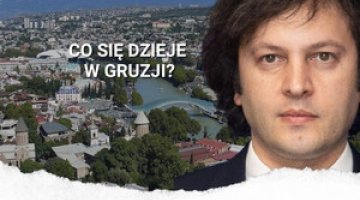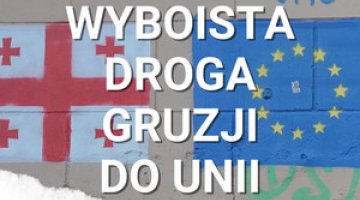A new force in Georgia politics?
On 7 October, the Georgian billionaire Bidzina Ivanishvili (the richest man in Georgia, with a fortune estimated at US$5.5 billion) issued a statement in which he announced the creation of a new political party. Its goal is to win next year's parliamentary elections and remove the current ruling camp from power. Ivanishvili made a fortune in the 1990s and early 2000s in Russia, where he was involved in the banking industry and metallurgy together with major Russian businessmen. In 2004, after the ‘Rose Revolution’, he received a Georgian passport and returned to Georgia, where – according to unconfirmed reports – he courted the favour of the new government and supported them financially. Despite consistently avoiding public speaking and the atmosphere of mystery surrounding him, Ivanishvili has gained wide recognition in Georgian society through his large-scale charitable activities.
Commentary
- It seems that the political force established under Ivanishvili’s auspices has a chance to make a mark on the Georgian political scene, thanks both to his wealth (Ivanishvili’s assets amount to almost half the country's annual GDP) and his positive public image. Despite the still strong support for the ruling camp in Georgia, there is great potential for social discontent (especially against the background of both social factors, such as unemployment and the collapse of the agricultural sector, and political factors). The existing opposition parties do not include any credible force which could exploit this potential. The global economic crisis, declining foreign investment in Georgia and the decline in foreign aid may contribute to the drop in the living standard of the population and a rise in negative public sentiment. In this situation, Ivanishvili’s movement could become a serious competitor to the president's United National Movement in next year's elections.
- Nothing is known about Ivanishvili’s views or his political base. The official statement suggests a continuation of the pro-Western course in foreign policy; efforts to reintegrate Abkhazia and South Ossetia; and efforts to normalise relations with Russia. At the same time, Ivanishvili’s long business career in Russia (according to his own statements, about 30% of his assets are still located there), and – inevitably at this level of activity – his involvement in that country’s opaque business-political structures have led to speculation about his possible relationship with the government and special services of Russia.
- Ivanishvili’s entry into active politics poses a real threat to the government camp, which so far has lacked any serious competitors. In this context, the Georgian Ministry of Justice’s statement stating that Ivanishvili does not have Georgian citizenship, as according to law he lost it when he took on French citizenship, must be interpreted as an attempt to prevent the billionaire from undertaking any political activity.





